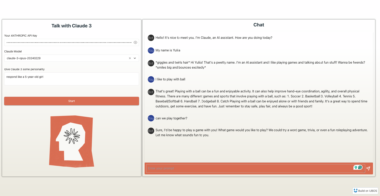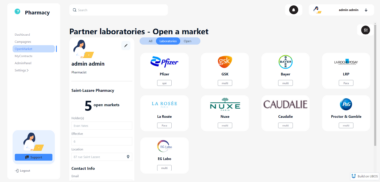UBOS Asset Marketplace: MCP Server Crash Course - Unlock Context for Your LLMs
In the rapidly evolving landscape of AI, Large Language Models (LLMs) are proving to be powerful tools. However, their true potential is often limited by their inability to access and process real-time, contextual information. This is where the Model Context Protocol (MCP) comes in, and the UBOS Asset Marketplace provides you with the resources you need to master it. This MCP Server crash course empowers you to bridge the gap between LLMs and the outside world, enabling more intelligent and context-aware AI Agents.
This comprehensive guide delves into the practical aspects of MCP Server development, offering a hands-on approach to building, deploying, and integrating MCP Servers. You’ll learn how to leverage the MCP Python SDK to create servers that can provide LLMs with the context they need to perform tasks more effectively. We will explore the essential uv commands, set up virtual environments, manage dependencies, and run your applications seamlessly. Moreover, this course offers seamless integration with cutting-edge tools like Claude Desktop and Cursor, boosting your productivity and allowing you to witness the immediate impact of context-aware AI.
What is MCP and Why is it Important?
MCP, or Model Context Protocol, is an open protocol that standardizes how applications provide context to LLMs. Think of it as a universal language that allows LLMs to communicate with external data sources and tools. An MCP Server acts as the intermediary, fetching and formatting data in a way that the LLM can understand.
Why is this important?
- Enhanced Accuracy: By providing LLMs with relevant context, you significantly improve the accuracy of their responses and predictions.
- Increased Efficiency: LLMs can make better decisions faster when they have access to the right information.
- New Possibilities: MCP unlocks new use cases for LLMs, allowing them to interact with the real world in a meaningful way.
Use Cases of MCP Servers
The possibilities for MCP Servers are virtually limitless. Here are just a few examples:
- Weather Information: As demonstrated in the crash course, an MCP Server can provide real-time weather data to an LLM, allowing it to answer questions about current conditions or forecasts.
- Stock Market Data: An MCP Server can fetch stock prices, financial news, and other relevant information, enabling LLMs to provide investment advice or analyze market trends.
- Product Information: An MCP Server can access product catalogs, pricing information, and customer reviews, allowing LLMs to answer questions about specific products or make recommendations.
- Calendar Integration: An MCP Server can integrate with user calendars, allowing LLMs to schedule appointments, set reminders, or provide information about upcoming events.
- Database Access: An MCP Server can connect to databases, allowing LLMs to query data and generate reports.
- Task Automation: An MCP Server can trigger actions in other applications, such as sending emails, creating tasks, or updating records.
Key Features of the MCP Server Crash Course
This crash course is designed to provide you with a practical, hands-on understanding of MCP Server development. Here are some of the key features:
- Step-by-Step Instructions: The course provides clear, concise instructions for each step of the development process, from setting up your environment to deploying your server.
- Practical Examples: The course includes several practical examples that demonstrate how to build and use MCP Servers in real-world scenarios.
- Integration with Popular Tools: The course shows you how to integrate your MCP Servers with popular tools like Claude Desktop and Cursor.
- Focus on the MCP Python SDK: The course focuses on the MCP Python SDK, which is a powerful and easy-to-use library for building MCP Servers.
- Deployment Strategies: We’ll discuss various options for deploying your MCP server to different environments, including cloud platforms and local machines.
Getting Started with the MCP Server Crash Course
To get started with the MCP Server crash course, you’ll need to have the following:
- Python 3.7+: Ensure you have a compatible version of Python installed on your system.
- uv: The uv package manager is used for managing dependencies and running your application. The course provides clear instructions on how to install and use
uv. - A Code Editor: Choose a code editor that you are comfortable with, such as VS Code, Sublime Text, or Atom.
- Basic Python Knowledge: A basic understanding of Python programming is helpful, but not required.
uv Commands: Your Toolkit for MCP Server Development
The uv package manager is a crucial tool in your MCP Server development workflow. Here’s a breakdown of the essential commands:
uv init <project-name>: Initializes a new project, creating the basic directory structure.uv venv: Creates a virtual environment, isolating your project’s dependencies.uv venv --activate: Activates the virtual environment, ensuring that you are working with the correct dependencies.uv add <package>: Installs a specific package as a dependency for your project.uv add -r requirements.txt: Installs dependencies from arequirements.txtfile.uv sync: Synchronizes the virtual environment with the project’s dependencies.uv run <app.py>: Runs a Python application.uv run dev: Runs the development server, typically used for hot-reloading and debugging.uv run build: Builds the project for deployment.
Integrating with Claude and Cursor
This crash course goes beyond the basics, demonstrating how to integrate your MCP Servers with popular AI tools like Claude Desktop and Cursor. This integration allows you to directly query your servers within these environments, providing a seamless and intuitive experience.
Adding a Server to Claude Desktop:
- Run the command
uv run mcp install .serverweather.py(replace.serverweather.pywith your server file). - Query “what is weather alert in CA” (or any relevant query based on your server’s functionality) in Claude Desktop.
Adding a Server to Cursor:
- Go to Preferences > Settings > MCP in Cursor.
- Copy and paste the Claude configuration (provided in the course) into the Cursor settings, adjusting the file path to your server file.
- Then, query your server within the Cursor chat interface.
Consuming Servers Directly in Code with mcp-use
For more advanced use cases, you can directly consume MCP Servers in your code using the mcp-use library. This allows you to programmatically access and utilize the data provided by your servers.
- Install
mcp-use:uv add mcp-use - Install
langchain-groq:uv add langchain-groq - Run the client application:
uv run server/client.py
UBOS: The Full-Stack AI Agent Development Platform
This MCP Server crash course is just one piece of the puzzle. To truly unlock the potential of AI Agents, you need a comprehensive platform like UBOS. UBOS is a full-stack AI Agent development platform that empowers you to:
- Orchestrate AI Agents: Manage and coordinate multiple AI Agents to achieve complex goals.
- Connect to Enterprise Data: Seamlessly integrate AI Agents with your existing data sources.
- Build Custom AI Agents: Create AI Agents tailored to your specific needs using your own LLM models.
- Develop Multi-Agent Systems: Build sophisticated systems that leverage the power of multiple interacting AI Agents.
Key UBOS Features that Complement MCP Servers
- Data Connectors: UBOS provides pre-built connectors for a wide range of data sources, making it easy to integrate your MCP Servers with your existing infrastructure.
- Agent Orchestration: UBOS allows you to define workflows that involve multiple AI Agents, including those that rely on MCP Servers for context.
- Custom Agent Development: UBOS provides the tools and resources you need to build custom AI Agents that can leverage MCP Servers for specific tasks.
- Monitoring and Management: UBOS provides a centralized dashboard for monitoring the performance of your AI Agents and MCP Servers.
Why Choose UBOS for Your AI Agent Development Needs?
- Comprehensive Platform: UBOS provides all the tools and resources you need to build, deploy, and manage AI Agents at scale.
- Easy to Use: UBOS is designed to be intuitive and easy to use, even for developers with limited experience in AI.
- Scalable and Reliable: UBOS is built on a scalable and reliable infrastructure, ensuring that your AI Agents can handle even the most demanding workloads.
- Open and Extensible: UBOS is an open and extensible platform, allowing you to integrate with other tools and technologies.
Conclusion: Empower Your LLMs with Context
By completing this MCP Server crash course and exploring the UBOS platform, you’ll gain the knowledge and skills you need to build context-aware AI Agents that can solve real-world problems. Start your journey today and unlock the true potential of LLMs!
This MCP Server crash course provides a solid foundation for building context-aware AI Agents. By mastering the concepts and techniques presented in this guide, you’ll be well-equipped to leverage the power of MCP and UBOS to create innovative and impactful AI solutions.
MCP Crash Course Server
Project Details
- suryanshp1/mcpcrashcourse
- Last Updated: 4/25/2025
Recomended MCP Servers
Nx Console is the user interface for Nx & Lerna.

MCP for Video- or Image-Generation with Google VEO2

Proxy Oblivious Transfer for Data Sharing.

Binance Cryptocurrency MCP
A Model Context Protocol (MCP) server that enables AI assistants like Claude to interact with your Google Cloud...
An MCP (Model Context Protocol) server for accessing and searching Magic UI components
server that shows trending tokens and integrates Grok, xAI image understanding and vision (interpreted as a vision-capable AI),...
JSON MCP Server

MCP server for accessing prompts stored in MLflow Prompt Registry

AI SOC Security Threat analysis using MCP Server
 From vibe coding to vibe deployment. UBOS MCP turns ideas into infra with one message.
From vibe coding to vibe deployment. UBOS MCP turns ideas into infra with one message.





